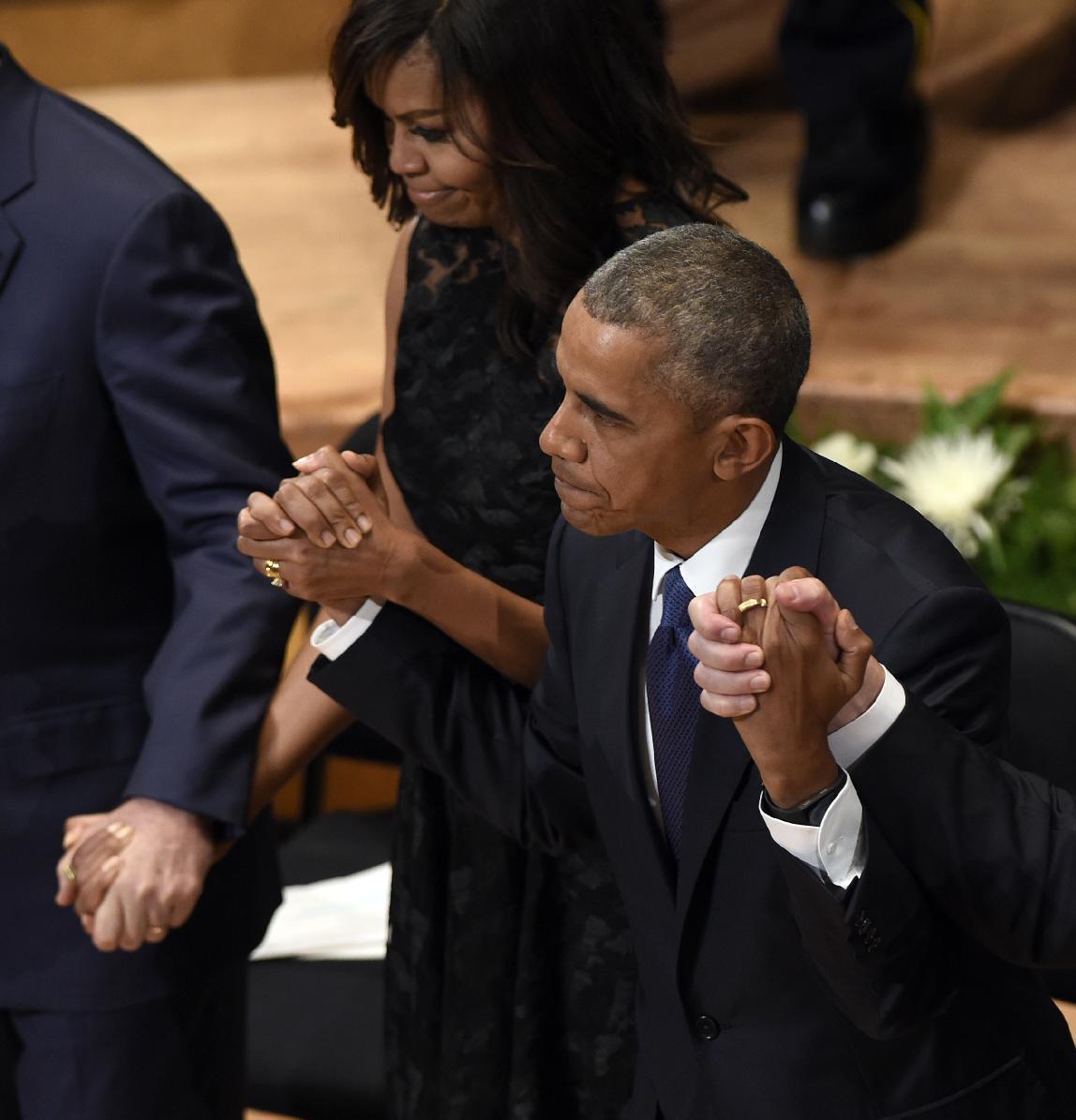Obama strives for reconciliation as he honors fallen Dallas officers
President Obama urged Americans on Tuesday to cast off despair over violence, to rise above racial divides and to honor five police officers slain in Dallas in a racially motivated attack by building on their call to service. Obama’s address at a memorial service for the officers killed last Thursday also followed a series of high-profile police killings of black men in the past two years, including two last week. His speech sought a careful balance between tribute to the fallen officers and respect for the country’s law enforcement, and sympathy for those protesting against police violence. A call for national unity and solidarity was reinforced by several speakers at the interfaith service, including former President George W. Bush, a Dallas resident.
We turn on the TV or surf the Internet, and we can watch positions harden and lines drawn and people retreat to their respective corners, and politicians calculate how to grab attention or avoid the fallout. … I understand how Americans are feeling. But Dallas, I’m here to say we must reject such despair. I’m here to insist that we are not as divided as we seem.
Obama
Emerging at the helm of the current divide between law enforcement and the communities across the nation is Dallas Police Chief David Brown. No stranger to this role, Brown has been lauded for taking bold steps to repair relations between police officers and minorities and has personal stake in the current crisis. Brown became chief in 2010, and a few months later, police shot and killed his 27-year-old son, who had gone on a shooting rampage, killing a civilian and a police officer. Then in 2012, the killing of a black man by a white officer triggered widespread protests in the city, and Brown responded by creating a public database to track shootings by police. He required officers to undergo lethal-force training every two months instead of every two years, and he fired 70 officers involved in questionable incidents. But the biggest backlash has come in the last six months, when Brown started a community policing program in mostly Hispanic and black neighborhoods. He began reassigning officers from desk jobs to foot patrols, a move that was praised by criminal justice experts but angered the police unions, who demanded his resignation. However, it has been a gradual process of getting residents accustomed to community policing, and some say the disconnect is still strong.
I’m more afraid of the police after the shooting because people are going to feel like everybody’s out for them. … We feel like the biggest gang is the police out here because they face no repercussions.
Anthony Williams, a 23-year-old demolition worker who described being routinely sworn at, frisked and asked for identification simply for sitting outside

Obama Dallas